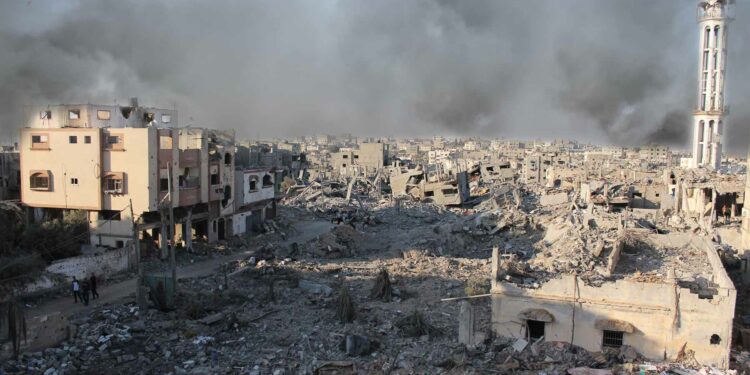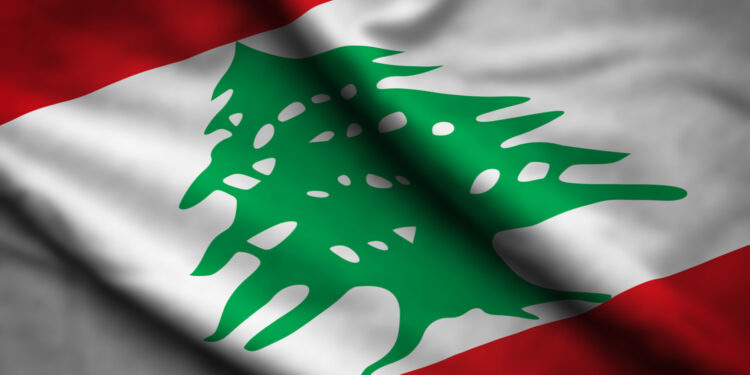The Lebanese political system is experiencing a structural and existential crisis that raises questions about its continuity without fundamental reforms nearly three decades after the adoption of the Taif Agreement, which ended the armed conflict in the Lebanese civil war. This system showed that it does not have the constitutional and institutional mechanisms to manage political conflicts that take a sectarian character among the ruling class. The country’s mismanagement and unprecedented levels of corruption led to economic and social collapse and security chaos that sets Lebanon in the category of a “failed state”. In this context, and after Lebanese President Michel Aoun recently called for a national dialogue, this paper discusses the potentials and conditions for the success of a national dialogue and whether the Taif Agreement is still a valid framework to deal with the crises of this political system?
The depth of the crisis
Contrary to previous crises in Lebanon’s modern history, the extent of today’s collapse requires more than bandages and painkillers. There is an urgent need for wide-ranging adjustments that address the roots of the crisis, hence it is necessary to shed light on the most prominent features of this collapse and the effects it has on Lebanese society. The Lebanese currency has lost more than 90 percent of its value since the financial crisis in 2019 and the current exchange rate of the Lebanese pound is now controlled by the black market. An ESCWA study published last September reported that the rate of “multidimensional poverty” in Lebanon increased from 42 percent in 2019 to 82 percent last year.
Recent weeks have witnessed social unrest with demonstrations directed against Lebanon’s Central Bank and the commercial banks that have not yet released depositors’ money since the collapse versus protests by unions given the lack of government support during economic hardship and rise in fuel prices. These demonstrations mirror the current conflict in Lebanon over who bears the responsibility for the economic collapse, and more importantly who pays for it: depositors, banks, or the state?
There are also the repercussions of the Beirut port explosion last August, which deepened the crisis of legitimacy and confidence in the system. As the families of the victims continue to demand justice, the political disputes hinder the conclusion of the investigation. All these accumulated crises and others need urgent reforms that impact the foundations of economic, financial, social, and judicial policies. But does the political conflict and limited prospects of change prevent achieving such reforms?
National dialogue and the Taif Agreement
The bilateral meetings held by President Aoun on convening a national dialogue did not suggest that there are serious intentions to get out of these crises or a willingness from the ruling class to discuss fundamental reforms, especially since the presidency that called for the dialogue is a party to the existing political crisis, while the new government is unable to take major decisions beyond managing the collapse. This national dialogue was postponed until further notice because Lebanese politics in the current period is focused on political calculations in preparation for the parliamentary and presidential elections if they are held within their constitutional deadlines this year.
Lebanon needs a broader framework to solve the political system’s structural problem. Returning to international, regional, or local conferences that are restricted to the ruling class is no longer a viable path considering the Lebanese uprising since 2019 that delegitimized this ruling class without offering a ready alternative. The ruling class that contributed to these crises cannot alone lead and create solutions to get out of them.
Typically, the parliamentary elections constitute a favorable opportunity to reproduce the political landscape in a country, but this matter does not appear to be feasible during the Lebanese elections next spring, considering the ruling class’s control over the electoral mechanisms and the security, judicial and media institutions. Those who oppose this political system are trying to organize themselves on the eve of the elections and may make inroads in some electoral districts, but they are not yet able to find a unified discourse and secure a sufficient majority to pass fundamental reforms in the next parliament, which will elect a president who will be chosen by the ruling class and the external powers that support them. So voluntary change from within the constitutional institutions is not feasible in the foreseeable future despite the accumulated popular pressures. Possible solutions could be first by external arrangements that pave the way for minimal stability to manage the collapse.
Second, the rise in popular pressure, in parallel with international sanctions on the ruling class, could impose fundamental reforms. But the path of forming the current Lebanese government has proven that external pressures through sanctions are not always effective, especially when they are selective, and they are not an option for the international community, which has backtracked on the idea to form a government of experts independent from the ruling class, and the result was the current government that is made by the ruling class. Third, a long-term path that allows those who oppose this political system to gradually present themselves as a younger and more vibrant alternative than the old generation of a ruling class that seems unable to guarantee the success of its political inheritance plans.
On the other hand, the “Taif agreement political system” has been experiencing an existential crisis for two decades, especially after the assassination of former Lebanese Prime Minister Rafik Hariri and the subsequent withdrawal of the Syrian regime from Lebanon, and the end of Saudi Syrian cooperation that once shaped Lebanese politics with an American French endorsement. After the Syrian regime was managing local disputes, Hezbollah filled this political vacuum and imposed its influence on the ruling class, especially after the May 2008 armed confrontations. Given the current lack of US-Iranian cooperation, there is no longer an external regulator to manage the Lebanese crisis.
The Taif Agreement, intentionally or not, left vague provisions in the constitution to resolve differences in a system with three presidents, and therefore there is either a need for political consensus to resolve these differences or intervention from influential external powers. The Taif Agreement has become in a “clinical death”, but no one dares to announce the death because there is no ready and agreed-upon alternative. There is concern about a possible scenario that translates the influence of Hezbollah and its allies into reforms that change the nature of the distribution of powers in the Lebanese system.
There should instead attempt to break the sectarian conflicts cycle and find creative mechanisms to manage differences. The consociational system provides mutual veto power within political institutions, thus addressing the dilemma of a lack of trust between the parties when the conflict is unresolved. The preparation for any effective dialogue needs to modify the dynamic of the consociational system through reforms that transcend sectarian considerations, rebuild confidence, and seek to form civil, media, judicial, and union movements outside the ruling class’s direct influence to press towards these reforms.
Considering the current political situation, it is not unlikely to have a serious breakthrough in Lebanon before the end of the presidential elections next fall, and based on the results of the parliamentary elections, there may be a postponement of the presidential elections, as happened previously, until an agreement is reached on the name of the president. Forming a cabinet after the election of the President could also be time-consuming.
This means 2022 may be an additional lost time in the process of stopping the collapse with what this means for the social disintegration and security chaos of the country. The moment of collapse is usually an opportunity to pass radical reforms that modify existing economic and financial policies, but in Lebanon, the Central Bank governor remains the first decision-maker in drawing up fiscal policies in the absence of any government plan or parliamentary oversight.
The Lebanese system does not have a clear economic vision for getting out of the collapse in the absence of any desire for any meaningful reforms despite internal and external pressures. There is no magic wand for the crisis in Lebanon except for gradual phases that reshape the political landscape, separate the state’s main services from the loyalty to leaders, and prevent arms and violence from dominating the public order and political life. Lebanon also needs international support to limit the extent of external interference in the management of its system.
There are questions regarding what the criteria for an effective national dialogue are. All past initiatives in Lebanon’s modern history that were driven by external parties have ultimately failed. Can the next national dialogue be internally driven and is there an internal actor who is not part of the political conflict nor has direct interests in the Lebanese crisis that can play this role?
Will the ruling class be open to wider representation for a dialogue on equal footing with representatives from those groups opposing the current Lebanese system? can the influential external parties in Lebanese politics encourage, stand down or not oppose this process? More importantly, should there be a prior willingness to adopt the agreed reforms in the Parliament or through a popular referendum organized by a neutral local body under international supervision?
The political settlement to reform the Lebanese system has not yet matured given the intertwined local, regional, and international conflicts, but the path of national dialogue must be launched as soon as possible because it may be the only way to save Lebanon.





